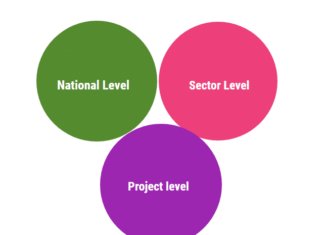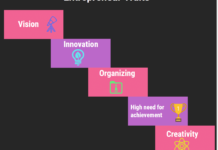-
Holland Boysen posted an update 2 months, 3 weeks ago
The worldwide shift in the direction of lasting energy remedies has actually brought enormous concentrate on energy storage space systems that can successfully integrate with sustainable energy resources. One such remedy is the deep cycle battery, renowned for its deep cycle ability, which permits it to give constant power over expanded durations. Unlike standard batteries that deliver quick ruptureds of energy for short periods, deep cycle batteries are engineered to discharge a large bulk of their capability, using dependable backup power for inverters and guaranteeing the seamless operation of Renewable Energy Systems.
When matched with sustainable energy systems like solar and wind, deep cycle batteries take on the duty of maintaining the energy supply. They store excess energy produced throughout durations of high renewable output and discharge it when the energy need exceeds the generation, therefore making sure a regular energy flow and promoting grid security.
NPP New Energy has actually been an introducing force in the area, driving developments that improve the performance and reliability of deep cycle batteries. A vital component of their success exists in the chemistry and building of these batteries. Commonly, these batteries are developed utilizing lithium-ion or lead-acid chemistries, each providing distinct benefits. Lithium-ion batteries, for circumstances, are favored for their high energy thickness, which allows them to save significant quantities of energy without occupying big rooms. Lead-acid batteries, on the other hand, are renowned for their toughness and cost-effectiveness, making them a viable option for various energy storage applications.
The battery internal structure is elaborately made to withstand numerous charge-discharge cycles, a testament to their sturdiness. Particularly, the plates within these batteries are thicker compared to those in starter batteries, a structural quality that supports continual energy discharge over prolonged periods. This attribute allows them to endure the roughness of constant cycling, thus optimizing their life-span and improving the return on financial investment for individuals.
In the context of automobile applications, deep cycle batteries add substantially to start-stop technology. This technology, primarily made use of in hybrid lorries, entails regular stopping and beginning of the engine to conserve fuel and decrease emissions. Deep cycle batteries, with their capability to manage countless charge-discharge cycles effectively, guarantee that the electric systems within these vehicles work efficiently, giving the essential power for starting engines and running onboard electronics even when the engine is off.
Past automotive applications, deep cycle batteries are integral to the burgeoning renewable resource landscape. As even more markets and households turn to solar panels and wind turbines, the demand for effective energy storage options has actually sky-rocketed. These batteries are essential components in eco-friendly setups, enabling users to harness solar or wind energy during daytime or windy conditions and shop it for use throughout periods of reduced sunshine or tranquil winds.
One of the critical factors to consider in the implementation of deep cycle batteries is their ecological impact. The products utilized in the batteries, specifically in lead-acid variants, undergo recycling, lowering the ecological footprint of these energy options. Additionally, progressed manufacturing methods used by leaders like NPP New Energy are lessening resource use and exhausts during manufacturing, further aligning the product lifecycle with lasting concepts.
In a period where energy demands are continuously growing and the need for sustainable options ends up being much more pressing, innovative battery technologies have actually taken facility stage, and deep cycle batteries are no exception. These batteries, defined by their deep cycle ability, are made to offer regular power over extended periods. This makes them ideal for applications where long term energy shipment is vital, like in renewable resource systems and as backup power for inverters. Unlike conventional batteries, which may falter under constant use, deep cycle batteries are engineered to endure repeated charge-discharge cycles, keeping efficiency and durability even after hundreds or countless cycles.
Among Grid Energy Storage of deep cycle batteries is their low self-discharge rate. This means they can keep their saved energy for longer periods when not being used, making them extremely reputable for standby applications. For customers reliant on renewable resource systems like solar or wind, having a battery that doesn’t shed its fee promptly is essential for maximizing the performance and reliability of their energy system, especially during periods with restricted sunlight or wind.
NPP New Energy has actually become a substantial player in this room, driving development in grid energy storage solutions to meet the advancing needs of the energy sector. With a concentrate on chemistry and building and construction, they take advantage of progressed materials and style principles to boost battery efficiency and sturdiness. The chemistry of the battery– frequently lithium iron phosphate, lead-acid, or more recent technologies like solid-state– determines its performance, security, life expectancy, and environmental influence. The building and construction of these batteries likewise plays a critical function, as it identifies their physical robustness and capacity to endure different ecological aspects.
The importance of grid energy storage can not be overstated in a world rapidly shifting in the direction of renewable energy systems. It is necessary for balancing supply and need, ensuring stability and dependability of the grid, and making it possible for better assimilation of recurring eco-friendly resources like solar and wind. Deep cycle batteries go to the heart of this shift, supplying efficient and scalable storage options that can be integrated at various degrees of the power grid.
Additionally, with the rise of electric cars and the fostering of start-stop technology– a system that immediately closes down and reboots the engine to lower idle time and emissions– deep cycle batteries have actually found yet another application. These batteries are specifically matched for start-stop systems because of their ability to promptly recharge and supply the needed power ruptured to restart the engine. This capability is important for modern automobiles intending to improve gas effectiveness and minimize carbon impacts.
Deep cycle batteries, with their deep cycle capability, reduced self-discharge rate, and durable construction, are progressively coming to be vital in numerous energy applications. Whether utilized for eco-friendly energy systems, backup power for inverters, or grid energy storage space, their role is essential in accomplishing an extra sustainable and efficient energy future. Firms like NPP New Energy proceed to push the limits of battery technology, creating services that meet the varied energy needs of today while leading the way for advancements that might redefine our energy landscape in the years to find.
Their capacity to give reliable backup power for inverters, combined with a reduced self-discharge price, makes them indispensable for renewable energy systems and grid energy storage space. The constant innovations in battery chemistry and construction, focused on making best use of charge-discharge cycles and enhancing the battery’s internal framework, promise even better contributions to energy strength and sustainability.
Home Activity












